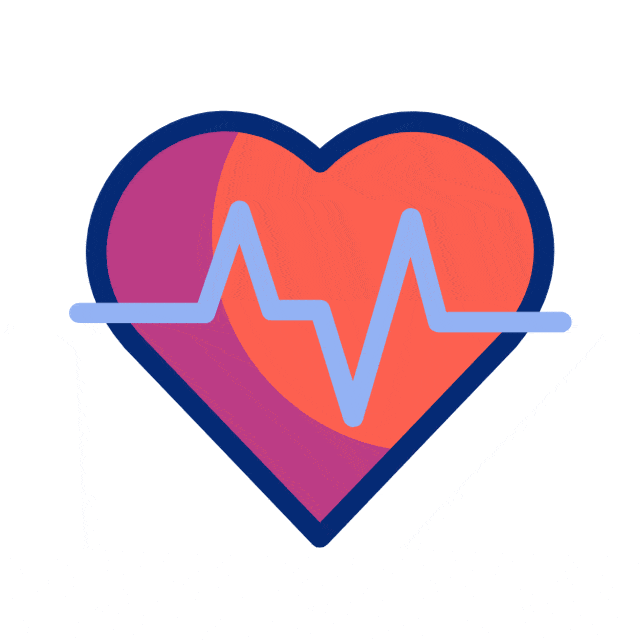Category : Immunization
Immunizations are not limited to children. They are crucial in keeping you safe throughout your entire life. Additionally, they become even more crucial as people age and their chance of contracting specific diseases increases.
Vaccinations are particularly more important for older patients, as there is a higher risk of exposure to communicable diseases like pneumonia and flu.
It has been proved that that several vaccines are both safe and highly effective in preventing a number of diseases that can have serious repercussions for the aging population. The JSS Hospital, Adult Immunization & Travel Medicine Center outlines the significance of vaccinations in maintaining the health and vitality of individuals aged 65 years and beyond.
As we age, immunizations become even more vital.
The immune system’s capacity to fight back against infections declines with age, causing those 65 and older more susceptible to diseases like shingles, pneumonia, and influenza.
Compared to younger populations, those in this age group are also more likely to experience major complications from these diseases. An 80-year-old and a 40-year-old have quite different flu symptoms.
It is more common for an 80-year-old to have more severe symptoms, which may require hospitalization or, in the worst cases, may even result in death.
If you are 65 years of age or older, these vaccinations are crucial to think about….
Influenza (flu) vaccine:
Individuals 65 years of age and older, as well as those with specific medical conditions, are advised to receive the annual influenza vaccination.
It is worth mentioning that although receiving the flu vaccine lowers your risk of contracting the illness, it is not always 100% successful. This is due to the fact that each year the flu vaccine is created using projections of the top three to four strains that are presumed to be the most common.
Therefore, as a preventative measure, getting vaccinated is advised.
Pneumonia vaccine:
Pneumococcal conjugate vaccine (PCV13, Prevenar 13) and pneumococcal polysaccharide vaccine (PPSV23, Pneumovax23),PCV 15 & PCV 20 are vaccines that can help lower the risk of pneumonia, which can be very serious for older individuals.
The Centre for Disease Control and Prevention (CDC) recommends these vaccines for individuals aged 65 years and older.
Pneumonia vaccine is also recommended for those aged less than 65 years but having certain medical conditions like diabetes, chronic lung disease, splenectomy etc. that put them at an increased risk of pneumococcal disease.
With the use of these vaccinations, the prevalence of pneumonia has dramatically decreased.
Shingles vaccine:
The virus that causes chickenpox, the varicella-zoster virus, is the source of shingles. In the event that you have had chicken pox, the virus is still dormant in your nerve tissue and could reactivate as shingles.
Similar to chicken pox, shingles typically affects one side of the body and can result in blistering red rashes. When you have it, it causes post herpetic neuralgia and is very incapacitating.
In the episode that someone has never been exposed to or received an immunization against shingles, you might transmit viral infection and causing chicken pox in them.
In reality, the shingles vaccine is is around 50% effective if administered between the ages of 65 and 70.This is because the immune system becomes less capable of fighting off the vaccine after the age of 70.
This is the rationale to obey your doctor’s recommendation and get your immunisations.
Vaccinations are necessary for even healthy individuals.
Many people still believe that vaccinations are only necessary for children; they either never consider getting immunizations or ask themselves, “Why should I do that if I’m healthy?”
Common Limitations for Adult Immunization include …
- Lack of physician recommendations
- False presumptions (e.g., these vaccinations are unnecessary for healthy individuals)
- Fear of needles
- Perceived side effects
- No insurance coverage
- Lack of Knowledge and awareness on Adult Immunization
- No compulsory National Programs about Adult Immunization
Vaccines have minimal risks and are generally very safe.
For the majority of patients, serious complications are extremely uncommon and advantages greatly outweigh the risks.
To create the ideal immunization schedule for an individual, it’s crucial to have a discussion about vaccinations with your Personal Physician in person.
For further details, please contact 0821-2335505, 9886754640, Adult Immunization & Travel Medicine Centre, JSS Hospital, Master Health Check-up Area.
Dr.Thippeswamy T,
Professor, Dept of General Medicine,
In charge Adult Immunization & Travel Medicine Centre,
JSS Hospital, Mysuru





